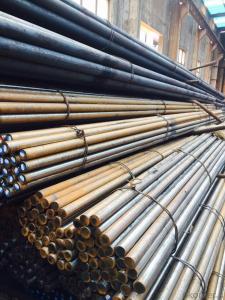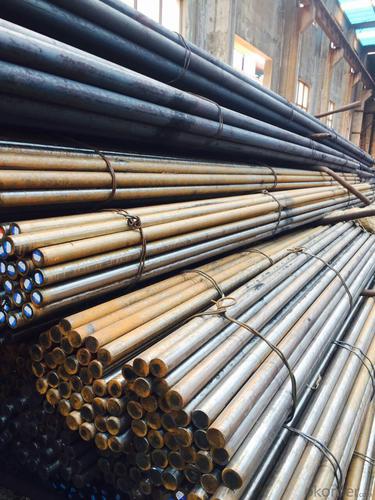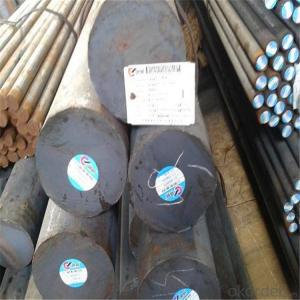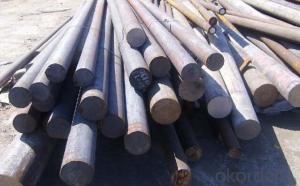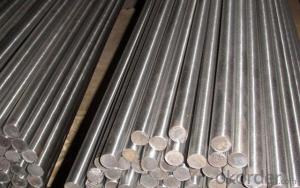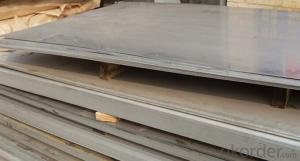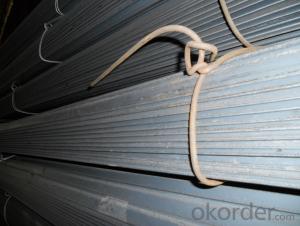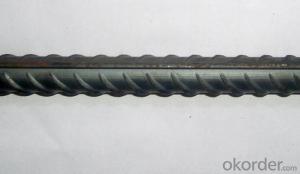Hot Rolled Carbon Steel C22 with High Quality
- Loading Port:
- Tianjin
- Payment Terms:
- TT OR LC
- Min Order Qty:
- 25 m.t.
- Supply Capability:
- 50000 m.t./month
OKorder Service Pledge
OKorder Financial Service
You Might Also Like
Specification
Hot Rolled Carbon Steel C22 with High Quality
Product description:
1: Dia: 100-1200mm;
2: Length: 3000-12000mm
3: Delivery condition:Hot forged, black surface/Peeled/Turned.
4: Delivery date: 30-45 days.
5: MOQ: 20tons.
6: Payment term: 30% in advance, 70% before shipment.
7: UT test standard: Sep 1921-84 c/c.
Characteristic:
Hastelloy C22 is a omnipotent of nickel, chromium and molybdenum mixed alloy, with better corrosion resistance performance than other alloys, for example, Hastelloy C276 alloy, C4 alloy and 625 alloy. Hastelloy C22 have a good resistance performance to pitting, crevice corrosion and stress corrosion cracking, have excellent inoxidability water medium performance, including the wet-chlorine, nitric acid or oxidizing acid mixed acid with chloride ion. Meantime, Hastelloy C22 possesses perfect resistance to reduction and oxidation of processing enviroments, then it can be used in some complicated environment or with many different manufacture target factory depend on the omnipotent performance. Hastelloy C22 possess prominent resistance performance to different chemical environments, including strong oxidizing matter, such as iron chloride, copper chloride, chlorine, heat pollution liquid(organic and inorganic), formic acid, acetic acid, acetyl oxide, sea water and salting liquid and so on. Hastelloy C22 alloy can resist the grain boundary precipitate form when jointing heat affected zone, this performance made it can applied in many kinds of chemical processing.
Chemical composition:
C | Si | Mn | S(≤) | P(≤) | B | Cr(≤) | Ni(≤) |
0.17-0.23 | 0.17-0.37 | 0.35-0.65 | 0.035 | 0.035 | 0.0008-0.003 | 0.25 | 0.3 |
Product show:
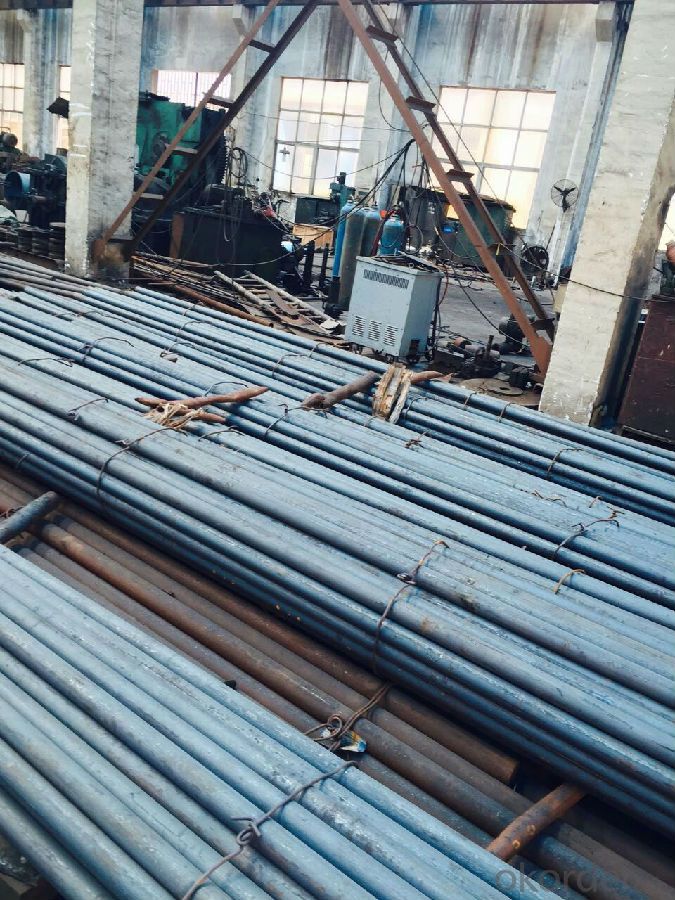
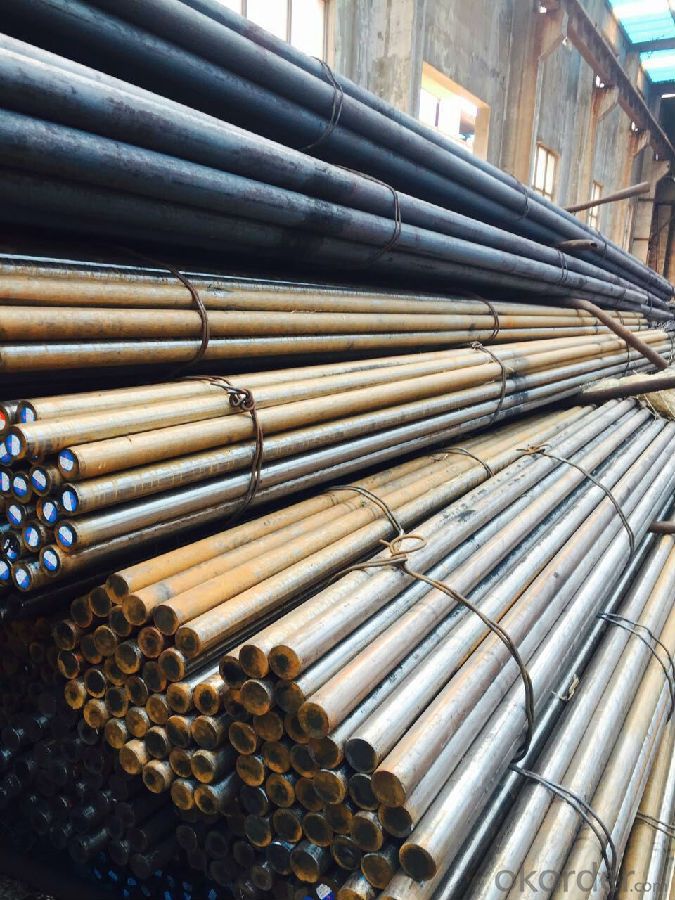
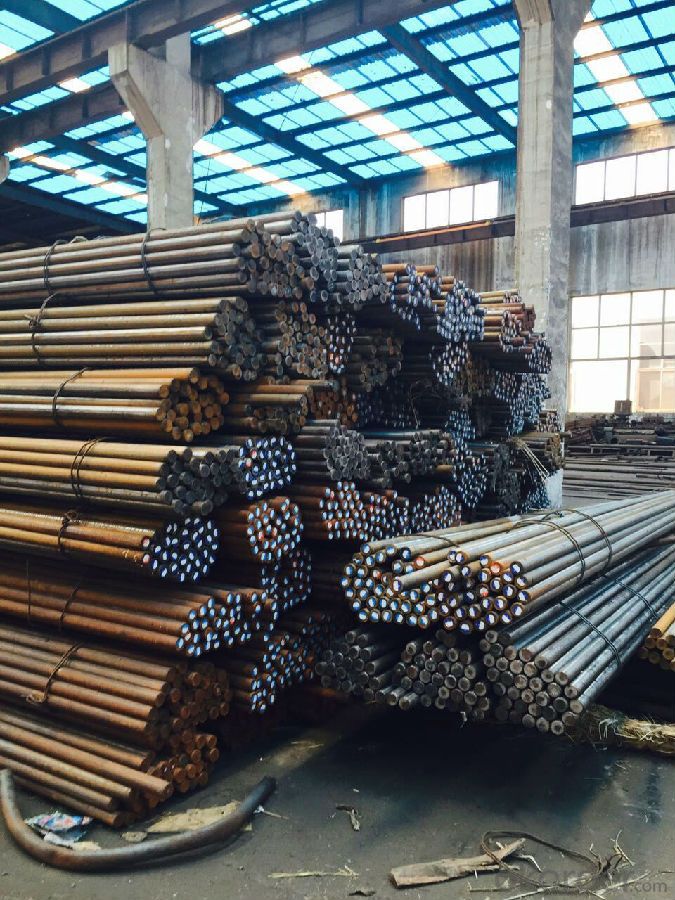
- Q: How does special steel perform in extreme temperature conditions?
- Special steel is designed to perform exceptionally well in extreme temperature conditions. It has a high tolerance for both low and high temperatures, allowing it to maintain its structural integrity and mechanical properties even in the harshest environments. This makes special steel an ideal choice for applications that involve extreme heat or cold, such as aerospace, energy production, and industrial processes.
- Q: What are the properties of corrosion-resistant tool steel?
- Corrosion-resistant tool steel possesses properties such as high hardness, excellent wear resistance, good toughness, and resistance to corrosion and oxidation. It is designed to withstand exposure to harsh environments, chemicals, and moisture, making it ideal for applications where resistance to corrosion is crucial, such as in marine environments or chemical processing industries.
- Q: What are the properties of high-strength tool steel?
- High-strength tool steel possesses excellent hardness, wear resistance, and toughness. It has the ability to retain its sharpness, withstand high temperatures, and resist deformation. This type of steel is also known for its high strength-to-weight ratio, making it ideal for heavy-duty applications in industries such as manufacturing and construction.
- Q: How does special steel contribute to the metalworking industry?
- The metalworking industry greatly relies on special steel to achieve properties and performance that regular steel cannot. Special steel plays a vital role in several ways: 1. Strengthened and Lasting: Through the use of specific alloys and composition, special steel is manufactured to be stronger and more durable than regular steel. This allows it to withstand high temperatures, heavy loads, and extreme environments, making it perfect for aerospace, automotive, and construction industries. 2. Improved Resistance to Corrosion: Special steel is designed to have superior resistance to corrosion compared to regular steel. This makes it highly suitable for marine, chemical, and oil and gas industries, where exposure to harsh environments and corrosive elements is common. 3. Increased Hardness and Resistance to Wear: Special steel can be engineered to have higher hardness and resistance to wear, making it ideal for manufacturing cutting tools, dies, molds, and other components that require prolonged usage and resistance to wear and tear. This contributes to increased productivity and efficiency in metalworking processes. 4. Precise Machining: Special steel offers excellent machinability, allowing for precise shaping, drilling, and cutting. This enables manufacturers to easily create complex and intricate designs, resulting in high-quality finished products and components. 5. Customization and Flexibility: Special steel can be customized to meet specific requirements, allowing for flexibility in design and application. Manufacturers have a wide range of special steel grades to choose from, each with its unique properties, to suit their specific needs. Overall, special steel significantly contributes to the metalworking industry by providing enhanced strength, durability, corrosion resistance, hardness, wear resistance, machinability, and customization options. It enables the industry to manufacture high-quality products, improve efficiency, and meet the demanding requirements of various sectors.
- Q: How does spring steel maintain its elasticity?
- Spring steel maintains its elasticity due to its unique composition and manufacturing process. It is made from a specific type of high-carbon steel that undergoes a specialized heat treatment called quenching and tempering. This process involves heating the steel to a high temperature and then rapidly cooling it in water or oil, followed by reheating to a specific temperature and allowing it to cool slowly. This heat treatment creates a fine-grained microstructure in the steel, which gives it the ability to withstand repeated bending or twisting without permanently deforming. Additionally, the high carbon content in spring steel enhances its strength and resilience, allowing it to return to its original shape even after being subjected to significant force or pressure.
- Q: What is the impact strength of special steel?
- The impact strength of special steel is typically higher than that of regular steel, which means it can withstand greater force or shock without breaking or deforming.
- Q: How does special steel contribute to improving product performance?
- Special steel contributes to improving product performance in several ways. Firstly, special steel has superior strength and durability compared to regular steel, making it more resistant to wear, corrosion, and impact. This increased durability ensures that products made with special steel have a longer lifespan and can withstand harsh conditions, ultimately enhancing their performance and reliability. Additionally, special steel can be tailored to have specific characteristics, such as high temperature resistance or magnetic properties, which can be crucial for certain applications. By using special steel, manufacturers can create products with enhanced functionality, efficiency, and safety, ultimately leading to improved overall performance.
- Q: How does special steel comply with international standards?
- Special steel, specifically designed and manufactured to possess exceptional properties and performance, undergoes a rigorous process to ensure its quality and conformity to established norms. To begin with, adherence to international standards in the production of special steel is achieved through the meticulous selection of raw materials. The composition and quality of these materials are carefully controlled and tested to meet the specifications outlined by international standards organizations. This guarantees that the resulting special steel is of the desired quality and possesses the necessary mechanical properties. In addition, standardized production processes are followed by special steel manufacturers. These processes are designed in accordance with international guidelines and standards to ensure consistency and traceability. Through the use of advanced technologies and quality control measures, manufacturers can monitor and control every stage of production, from melting and casting to rolling and heat treatment. This guarantees that the final product meets the required standards in terms of chemical composition, mechanical properties, and dimensional tolerances. Moreover, stringent testing and inspection procedures are conducted to validate the compliance of special steel with international standards. Certified laboratories and independent third-party agencies perform various destructive and non-destructive testing methods, such as ultrasonic testing, hardness testing, and microstructure analysis. These tests ensure unbiased and accurate results. Furthermore, special steel manufacturers often have their production processes and quality management systems audited and certified by recognized bodies, like ISO, to demonstrate their commitment to compliance with international standards. It is also important to note that special steel manufacturers actively participate in international standardization committees, such as ASTM International and ISO. By engaging in these committees, they contribute to the development and revision of international standards, ensuring that their products remain up to date and aligned with the latest industry requirements. In conclusion, special steel complies with international standards through careful raw material selection, adherence to standardized production processes, rigorous testing and inspection, and active participation in international standardization committees. By following these measures, special steel manufacturers demonstrate their dedication to producing high-quality products that meet the strict requirements of international standards.
- Q: What are the specific requirements for special steel used in the electronics industry?
- In order to meet the unique demands of the electronics industry, special steel must fulfill certain requirements. These requirements include: 1. To protect electronic components from environmental factors like moisture, humidity, and chemical exposure, special steel used in the electronics industry must have high corrosion resistance. 2. Efficient transmission of electricity within electronic devices relies on the excellent electrical conductivity exhibited by the steel. This property is crucial for the proper functioning of electronic components. 3. Depending on the application, special steel used in the electronics industry must possess specific magnetic properties. Some electronics require non-magnetic steel to avoid interfering with sensitive magnetic components, while others may need specific magnetic properties for magnetic shielding or as core material in transformers. 4. To ensure the longevity and reliability of electronic components, the steel must possess high strength and durability, enabling it to withstand the stresses and strains encountered during the manufacturing process and throughout the lifespan of the electronic device. 5. Special steel used in the electronics industry must be able to withstand high temperatures without compromising its structural integrity or electrical properties. This is particularly important in electronic devices that generate heat, such as computer processors or industrial control systems. 6. The steel must be easily formable and machinable to enable efficient manufacturing processes and the production of intricate electronic components. This allows for the fabrication of complex shapes and designs required in the electronics industry. 7. To ensure optimal performance and reliability of electronic devices, special steel used in the electronics industry should have minimal impurities and contaminants. High purity steel guarantees the absence of unwanted elements that may cause electrical or chemical interference. Meeting these specific requirements for special steel used in the electronics industry is crucial for producing high-quality and reliable electronic devices. By fulfilling these requirements, the steel can withstand the challenges and environmental conditions unique to the electronics industry, ultimately contributing to the overall performance and functionality of electronic devices.
- Q: What are the applications of special steel in the oil and gas supply chain?
- Special steel is widely used in the oil and gas supply chain due to its exceptional properties. It is used for various applications such as pipes, valves, and fittings, where its high strength, corrosion resistance, and ability to withstand extreme temperatures and pressures are crucial. Special steel is also used in equipment like drilling tools, offshore platforms, and storage tanks, ensuring reliability and durability in challenging environments. Additionally, it is employed in the construction of pipelines, providing a reliable and safe mode of transportation for oil and gas products.
Send your message to us
Hot Rolled Carbon Steel C22 with High Quality
- Loading Port:
- Tianjin
- Payment Terms:
- TT OR LC
- Min Order Qty:
- 25 m.t.
- Supply Capability:
- 50000 m.t./month
OKorder Service Pledge
OKorder Financial Service
Similar products
Hot products
Hot Searches
Related keywords
